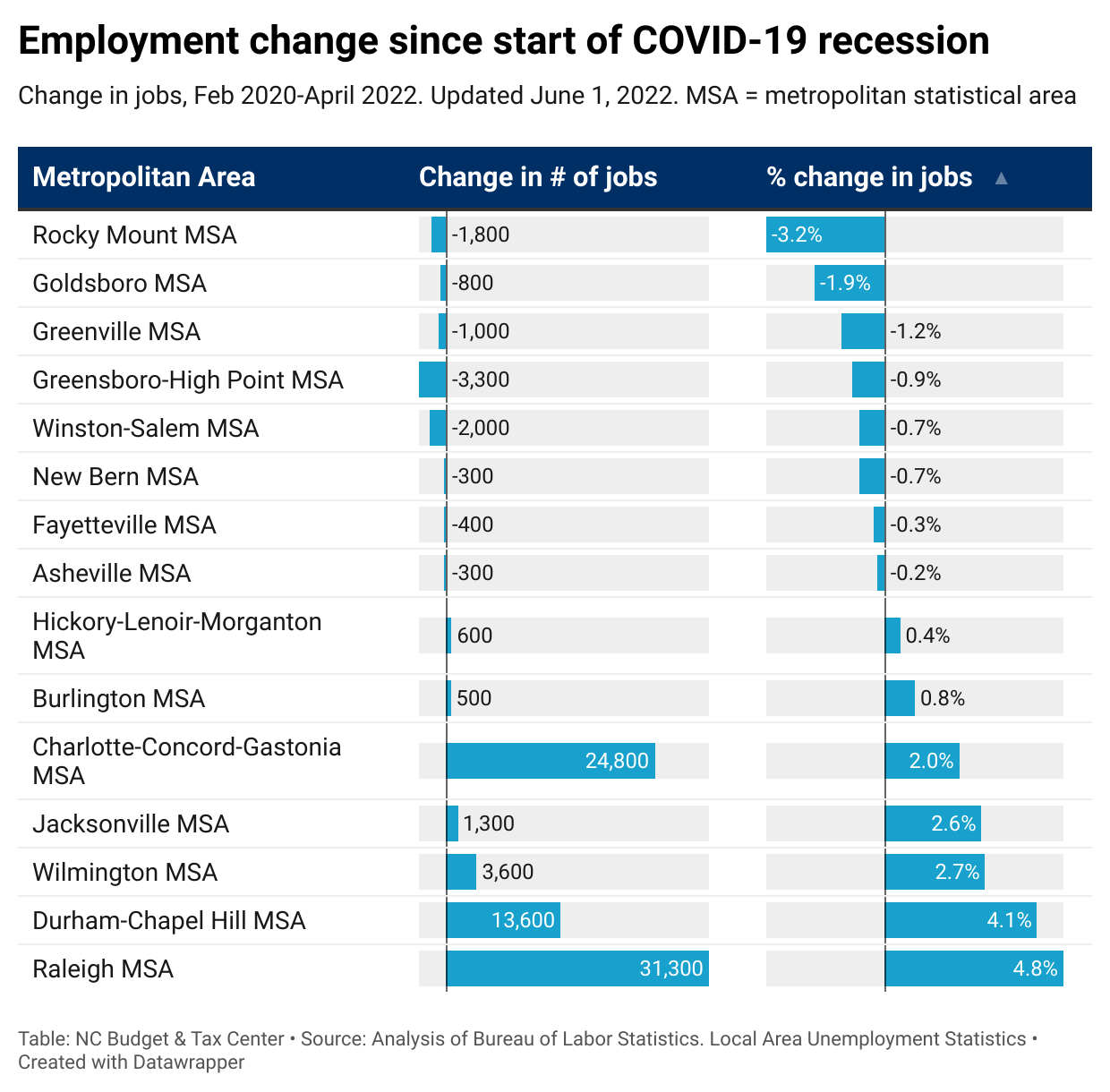
Job growth remarkably concentrated in a few cities – many communities need more support
As the great Mark Twain observed, “history doesn’t repeat itself, but it often rhymes. So it is with the employment landscape in North Carolina.
We’ve been seeing job opportunities blossom in some of North Carolina’s urban areas while bypassing many smaller towns and rural areas for years, but what’s happening now is remarkable. North Carolina as a whole has recovered all of the jobs lost at the start of COVID-19 (and then some), but that growth is not finding its way to many communities.
Total North Carolina employment had recovered to pre-COVID levels by the end of last year, and we’re now nearly 110,000 jobs ahead of where we were when the pandemic began. That’s great news and shouldn’t be taken lightly. We were still losing jobs at this point in the Great Recession, so the speed of this recovery is dramatic.
We saw differences in how quickly different regions and cities recovered from the Great Recession, but what’s happening now is still striking. The triangle (Durham, Raleigh, and Chapel Hill) accounts for around 40 percent of the total net job growth in North Carolina since the onset of COVID-19. Add in Charlotte and this accounts for almost two-thirds of all the jobs created since the start of the pandemic.
And it’s not just a story of rural vs. urban. More than half of the major metropolitan areas in North Carolina still have not recovered the jobs lost in 2020. To be fair, most of those cities are within a few thousand jobs of getting back above water, but compared to the 31,300 jobs added in Raleigh and the 24,800 jobs Charlotte piled on, there are different dynamics at play depending on what city you’re looking at.
It's still true that the deeper crisis is playing out outside of major cities in many communities that never recovered from the shock of the Great Recession and the decades-long erosion of manufacturing. More than half of the counties in North Carolina have fewer people working than before COVID-19, and in a lot of communities COVID-19 piled on top of job losses that date back to the Great Recession. In fact, one-third of the counties with fewer residents working today than before the pandemic also never generated enough employment for everyone who lost jobs during the Great Recession.
With the North Carolina General Assembly back in business, they have some work to do to ensure every community recovers from the economic shock of COVID-19. If lawmakers stick with the same formula of tax cuts for rich people and profitable corporations, while refusing to invest in communities that are struggling to recover, we’re likely to hear history rhyming again.



